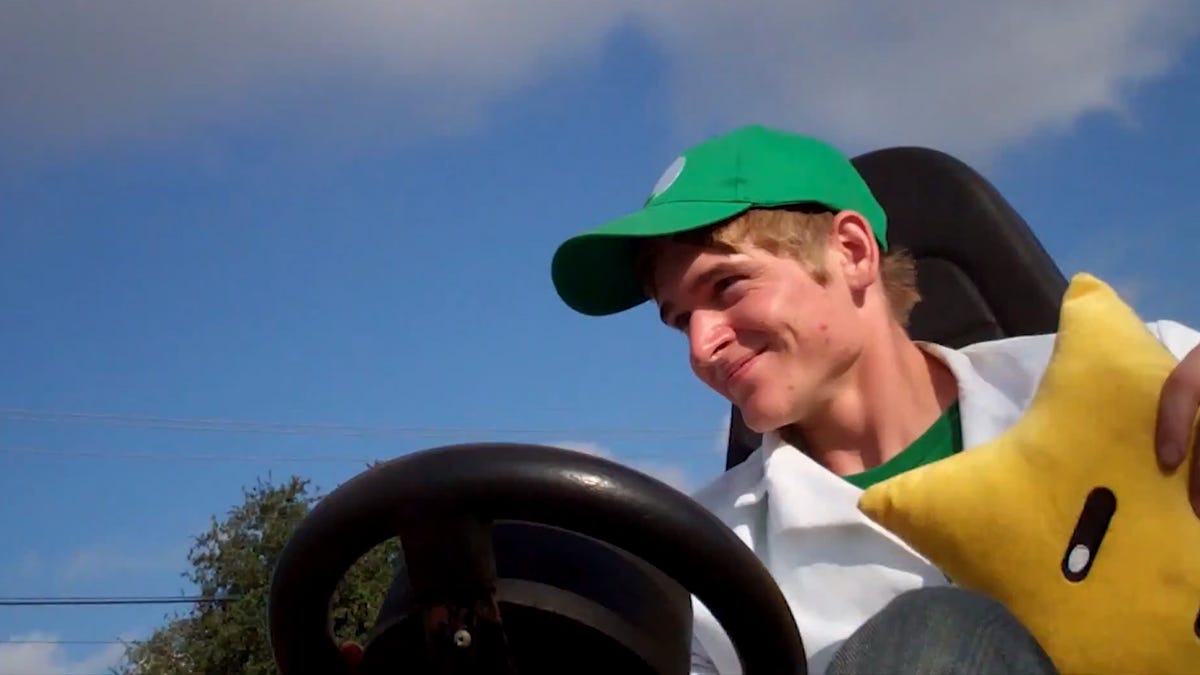Vroom vroom: Mario Kart gets real-life run
A group of geeks from Texas make a real-life version of the quintessential racing video game Mario Kart, complete with working power-ups.

When stuck in traffic, I often feel tempted to launch a red turtle shell at a slow car in front of me so it blows up and gets out of my way. Felonious temptations aside, perhaps I'd be better off living vicariously through the gentlemen of Waterloo Labs and their ingenious real-life re-creation of Mario Kart.
The project, led by Texas-based engineers Hunter Smith and Ben James, features four technology-infused go-karts that dynamically respond to the action on the track -- meaning that if someone picks up a power-up, they actually gain an advantage (or sometimes a disadvantage) over the other racers. For added effect, each kart contains a 120 psi cannon capable of launching green turtle shells at other participants in the race, causing the target to wipe out.
Whenever a driver picks up a power-up during a race, an RFID tag attached to the item wirelessly communicates with the go-kart's computer. The computer controls the kart's pneumatics and servos, essentially giving it full control over the throttle, gas, and brakes.
The power-up items, obtainable at various places around the track, include all of the regulars, such as mushrooms (which give the driver enhanced speed), turtle shells (which disable the target's kart), and lightning bolts (which induce brakes on all other karts). The resulting video shows just how much calamity can occur as racers pick up items and essentially disable the other drivers' vehicles, similar to the hectic experiences in the video game.
For those hungry to make this on their own, Waterloo Labs group posted a fully detailed overview of the tech within the karts, and also the full source code of the software that makes the whole thing work. Get a kartin'!

